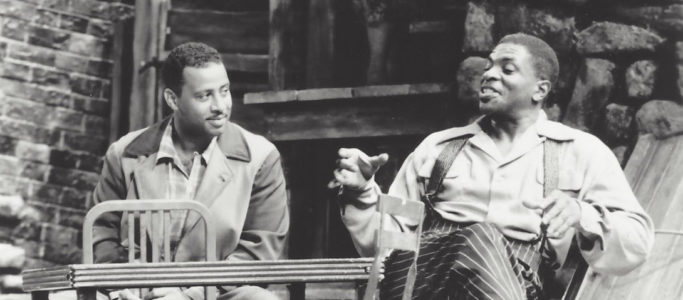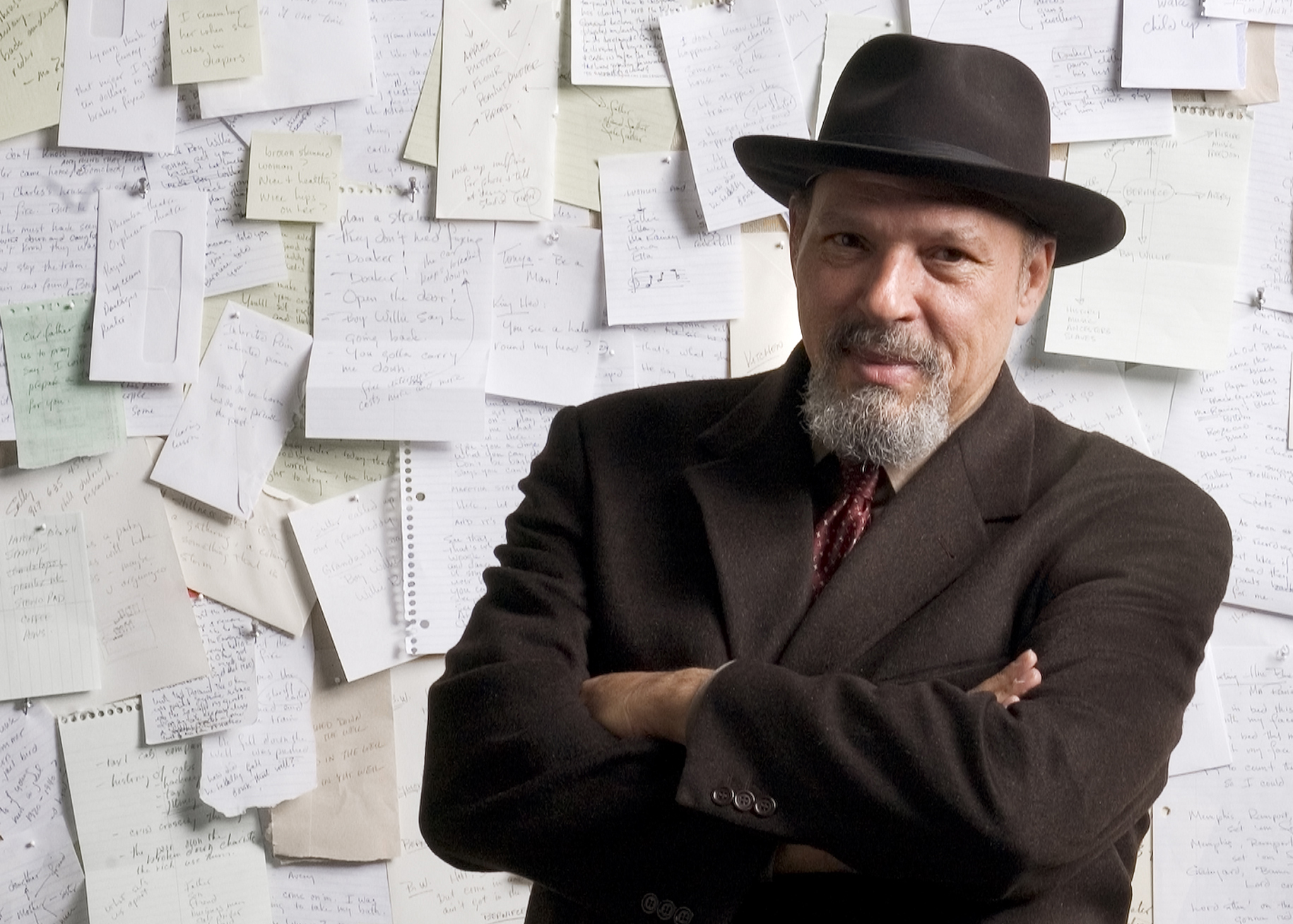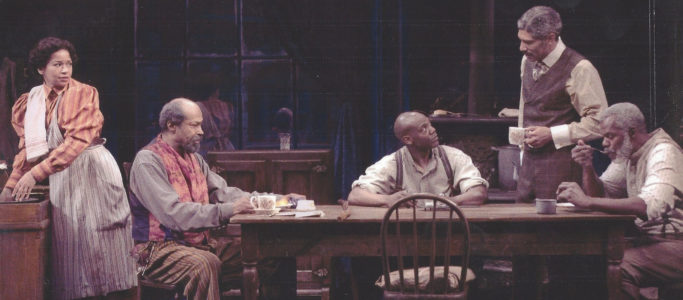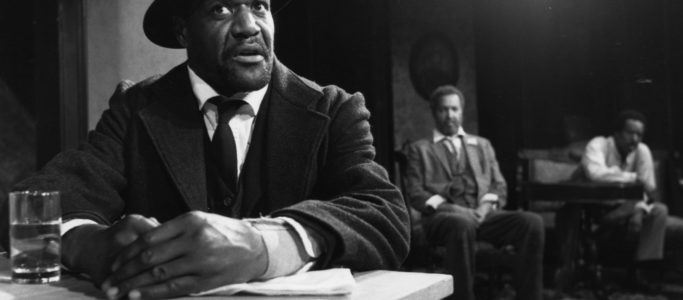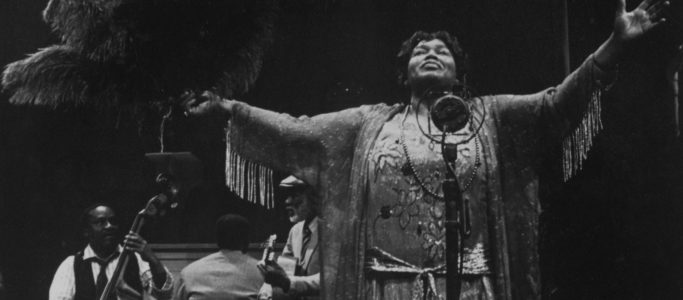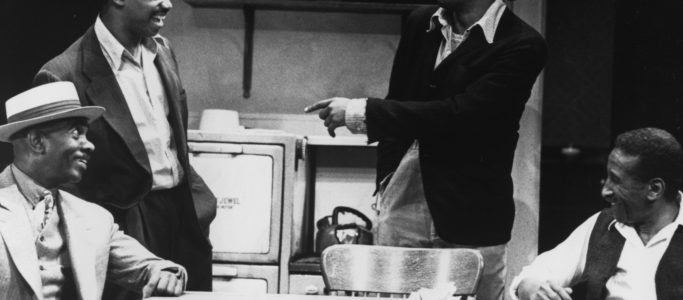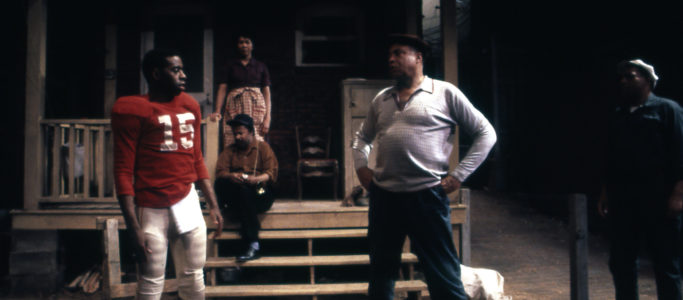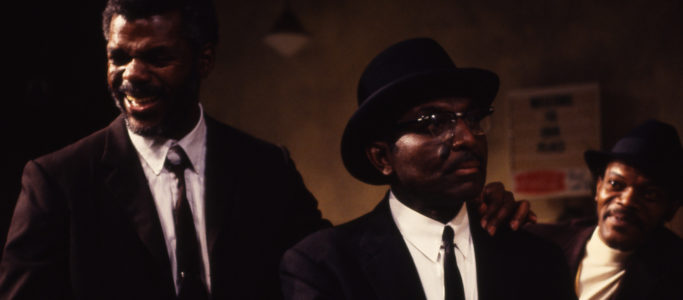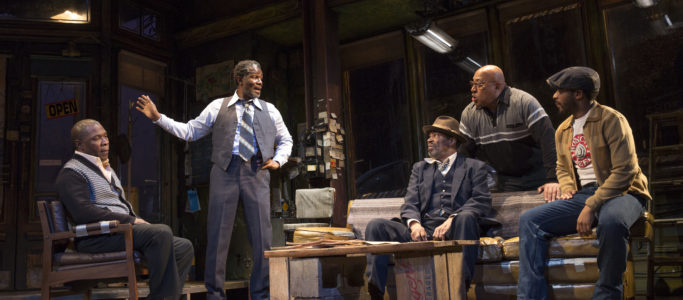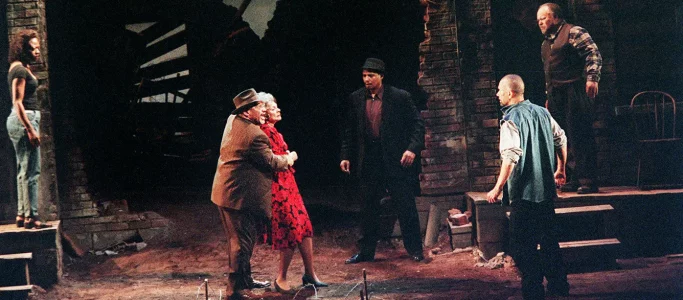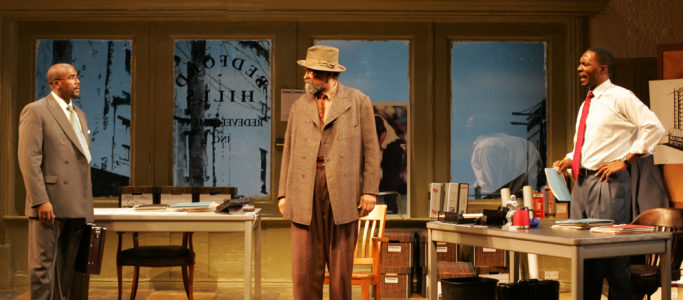Seven Guitars
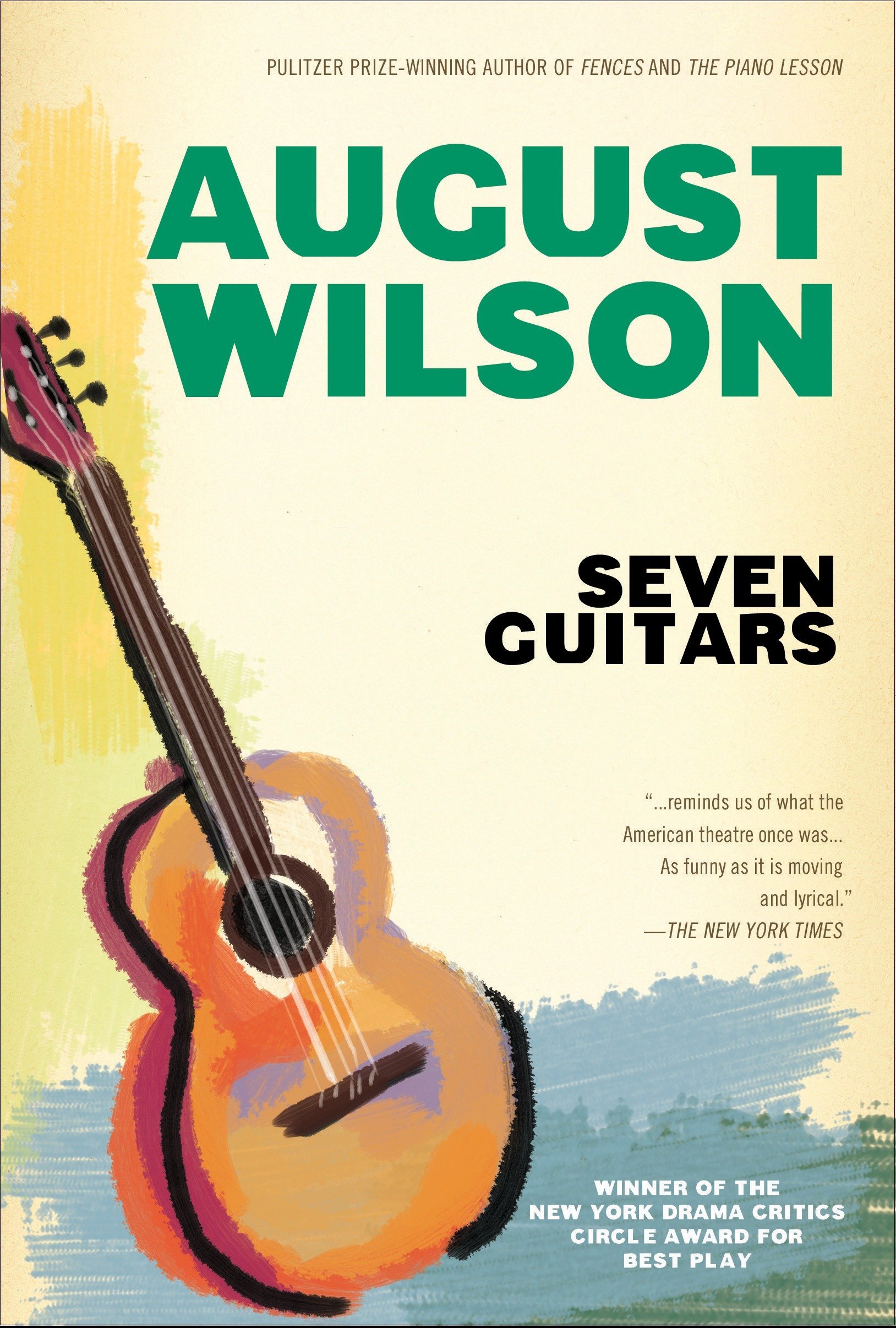
- Broadway Debut
-
March 28, 1996
Kerr Theatre
- Performances
- 188
The flashbacks of Seven Guitars are set in the backyard of a Pittsburgh boarding house in 1948.
Seven Guitars is the only play in the American Century Cycle that begins with “a note from the playwright.” In it, Wilson explains, “I have tried to extract some measure of truth from [the characters] lives as they struggle to remain whole in the face of so many things that threaten to pull them asunder.” Seven Guitars is chock-full of such “things.” The injustice of the police force, the biased and unfair legal systems in place, insurance ponzi schemes, and institutionalized poverty are all topics of discussion. The characters of Seven Guitars confront these obstacles individually; though two characters stand out to the audience: Floyd, the ambitious protagonist whose first hit single plays consistently on radio throughout the play, and Hedley, a mentally turbulent man who spouts disparate Biblical passages, self-concocted blues lyrics, and allusions to Black leaders of bygone years. Wilson skillfully illustrates the tragic measures these two characters undergo in search for their own fated legacies.
In His Own Words
“Everybody say Hedley crazy ‘cause he Black. Because he know the place of the Black man is not at the foot of the white man’s boot. Maybe it is not all right in my head sometimes. Because I don’t like the world. I don’t like what I see from the people. The people is too small. I always want to be a big man. Like Jesus Christ was a big man. He was the Son of the Father. I too. I am the son of my father.”Hedley, Act 2, Scene 1

August Wilson:
A Writers Landscape
August Wilson: The Writer’s Landscape, the first-ever exhibition dedicated to the life and works of the Pulitzer Prize-winning playwright, will open in spring 2022. The permanent exhibition will explore the people and places of Pittsburgh, where Wilson was born and raised, and which had a profound impact on shaping his worldview.
Explore Exhibit
